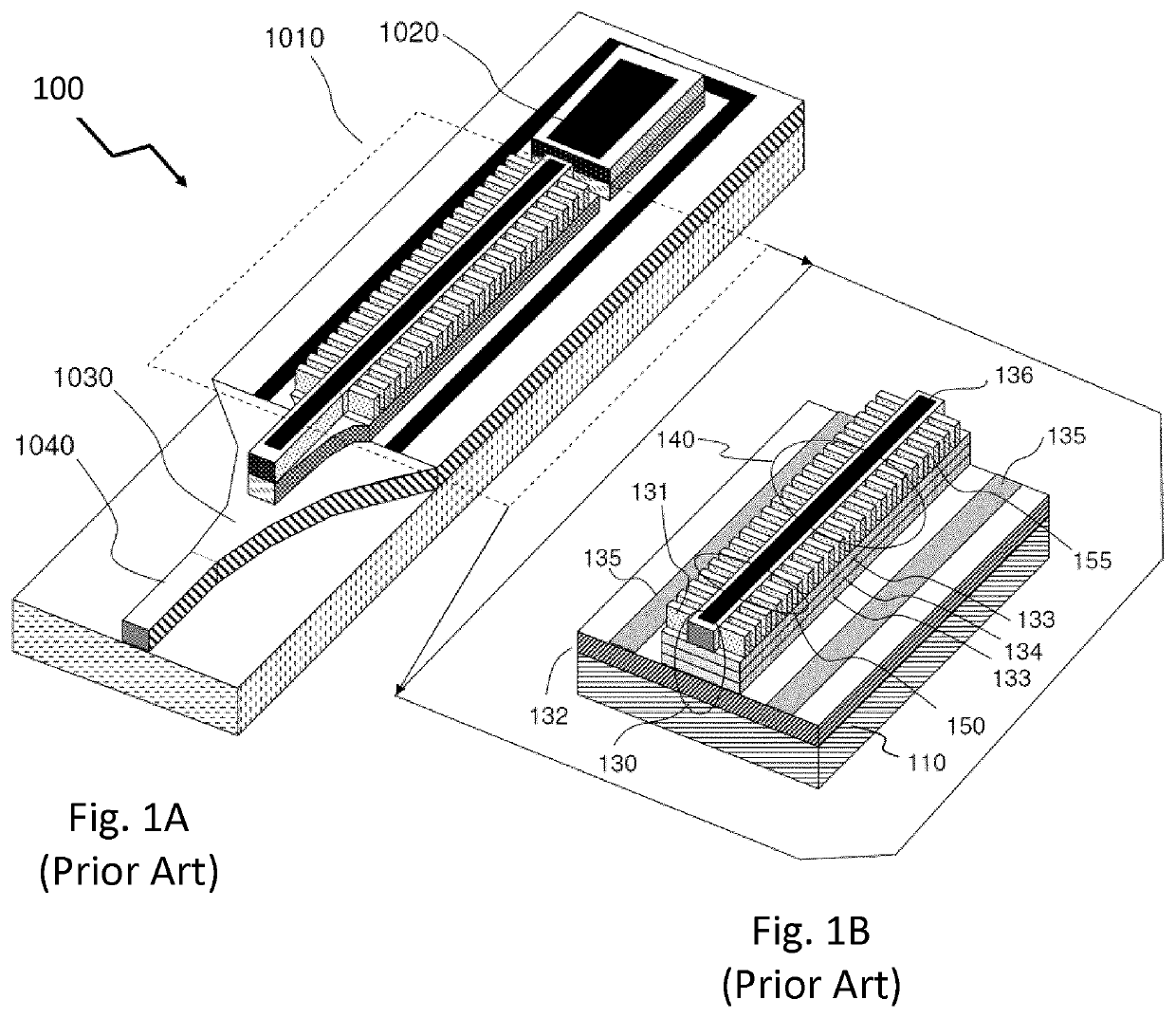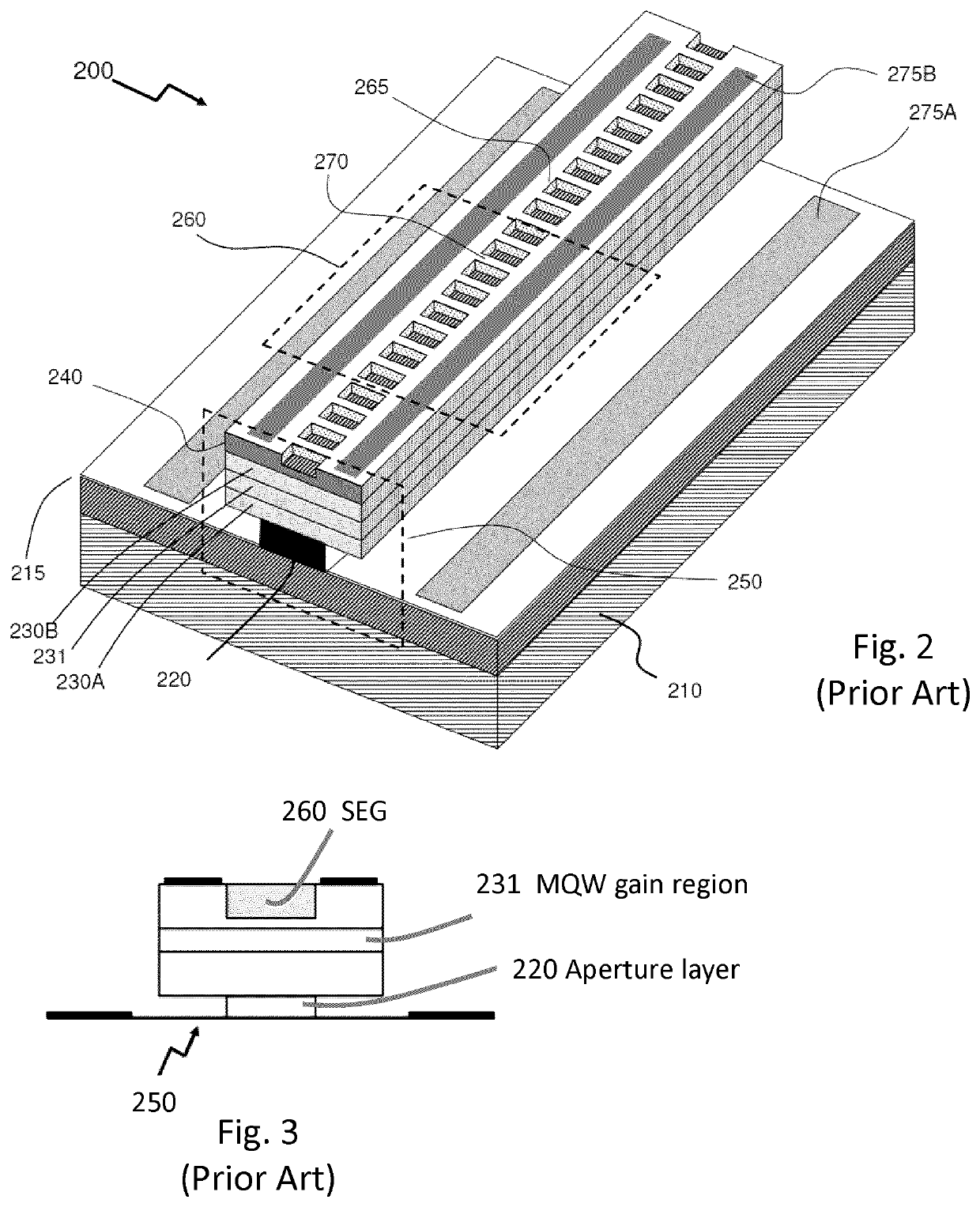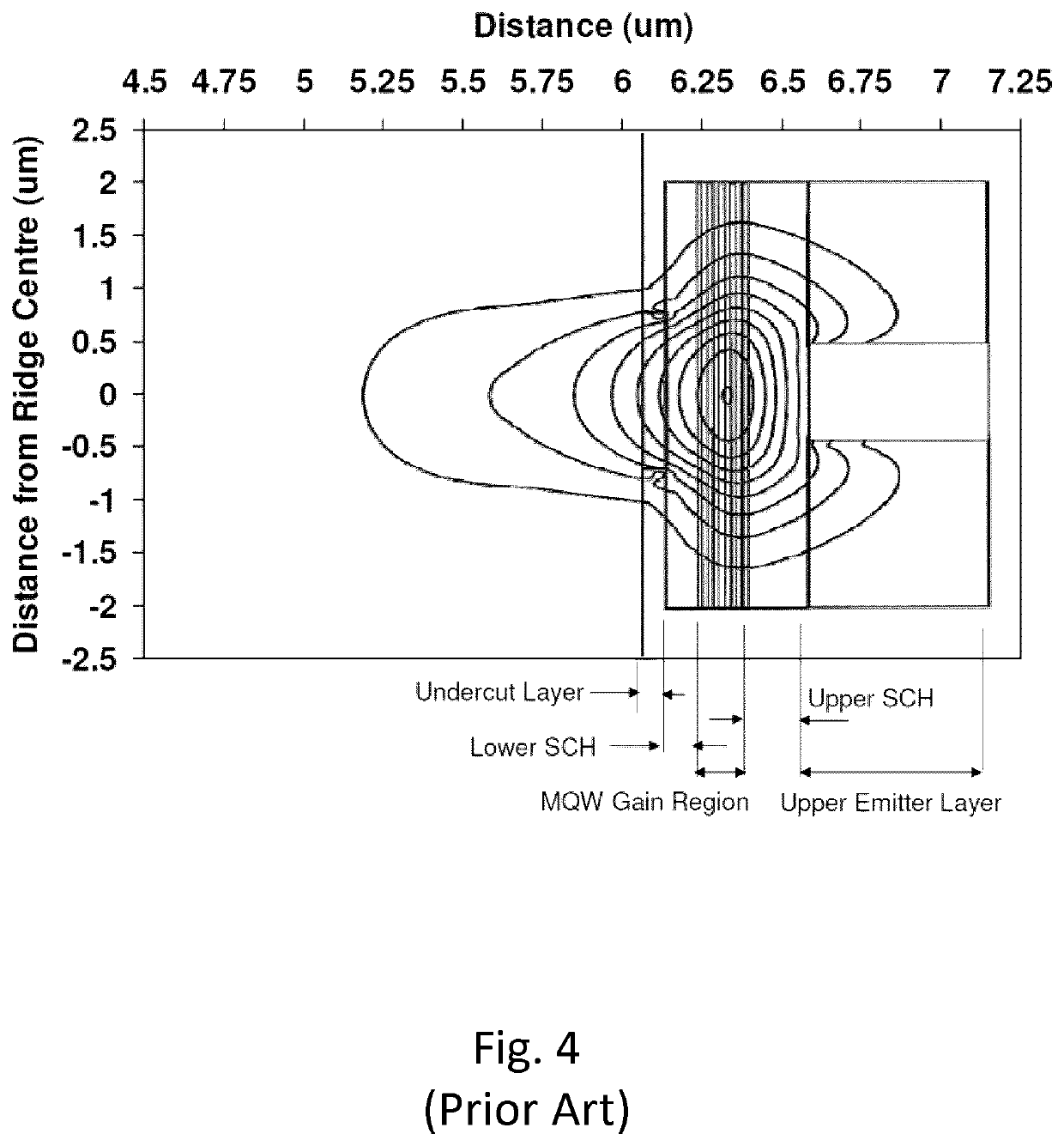Semiconductor laser device structures and methods of fabrication thereof
a laser device and semiconductor technology, applied in semiconductor lasers, laser optical resonator construction, laser details, etc., can solve the problems of inconvenient use of metal reflectors on the back facet that block light completely, high reflectivity metal reflectors that cannot be used in multi-transverse mode operation, and high cost of facet coatings
- Summary
- Abstract
- Description
- Claims
- Application Information
AI Technical Summary
Benefits of technology
Problems solved by technology
Method used
Image
Examples
first embodiment
[0064]FIG. 6A is a schematic diagram of a device structure comprising a VC SEG DFB laser with a phase-aligned mode-selective reflector of a first embodiment, comprising a structured reflector in the form of a single interface mirror structure. As illustrated schematically, the laser mesa comprises a DFB SEG etched along the length of the mesa, e.g. similar to that shown in FIG. 2. The back-facet of the laser structure is formed by etching a trench, which in this embodiment it is a simple rectangular trench. One wall of the trench that forms the back-facet of the laser waveguide is spaced a predetermined distance from the grating, e.g. a multiple of λ / 4, to provide a phase-adjust region, and a spatially patterned reflector is provided on the back-facet. The spatially patterned back reflector is configured to selectively reflect the TE0 mode, e.g. formed as a thin stripe reflector having dimensions which optimize reflection of the TE0 mode relative to the higher modes. Other areas of ...
third embodiment
[0068]FIG. 7A is a schematic diagram of a device structure comprising a VC SEG DFB laser with a phase-aligned mode-selective reflector of a third embodiment comprising a multi-interface (DBR) type structure. In this structure, a spatially patterned back-facet reflector coating is replaced with a distributed Bragg reflector structure (DBR structure), which comprises a series of etched trenches defining a multi-interface reflector. In this embodiment, the etched trenches are rectangular trenches. This structure also includes a phase-adjust region between the DFB grating teeth of the laser and the DBR structure.
fourth embodiment
[0069]FIG. 7B is a schematic diagram of a device structure comprising a VC SEG DFB laser with a phase-aligned mode-selective reflector of a fourth embodiment comprising a multi-interface (DBR) type structure, wherein the etched trenches defining the multi-interface reflector are a series of trapezoidal trenches, separated from the DFB grating teeth of the laser by a phase-adjust region. In variants of this embodiment, the trapezoidal trenches may have curved sidewalls, and other geometric forms of trenches with flat or curved sidewalls may be used, as appropriate. As noted in FIG. 7B, in practice the trenches may be shaped to to avoid acute angles at the corners.
[0070]For each of the structures shown in FIGS. 7A and 7B, the dimensions and coating materials of the multi-interface DBR structure are configured to provide higher feedback of the fundamental TE0 mode relative to higher order transverse modes, e.g. TE1, TE2, etc.
[0071]The mode selective filter may comprise laterally define...
PUM
 Login to View More
Login to View More Abstract
Description
Claims
Application Information
 Login to View More
Login to View More - R&D
- Intellectual Property
- Life Sciences
- Materials
- Tech Scout
- Unparalleled Data Quality
- Higher Quality Content
- 60% Fewer Hallucinations
Browse by: Latest US Patents, China's latest patents, Technical Efficacy Thesaurus, Application Domain, Technology Topic, Popular Technical Reports.
© 2025 PatSnap. All rights reserved.Legal|Privacy policy|Modern Slavery Act Transparency Statement|Sitemap|About US| Contact US: help@patsnap.com



